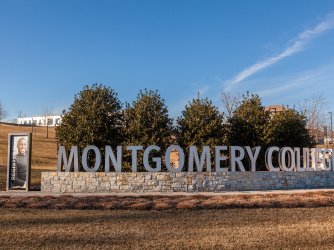Table of Contents
New proposed Title IX regulations feature essential safeguards for free speech and due process on campus

Back in August, FIRE’s Robert Shibley highlighted some important provisions contained in a leaked draft of new Title IX regulations that were expected to be released shortly by the Department of Education’s Office for Civil Rights. Today, the department officially released its proposed regulations and will now solicit public comment. As FIRE hoped, these proposed rules include a number of crucial clarifications and mandates for schools that, if finalized, would help ensure they afford fair hearings to students accused of sexual misconduct while taking seriously all accusations of such misconduct. Here are notable highlights:
Live hearings and cross-examination
The department’s provision on hearings and cross-examination is groundbreaking for several reasons.
First, it requires that schools “must provide for a live hearing” when adjudicating a case. This stands in sharp contrast to previous guidance from OCR and the White House Task Force to Protect Students from Sexual Assault, which allowed and even encouraged schools to have a single investigator adjudicate sexual misconduct cases through a series of separate meetings with the parties and witnesses.
Having a live hearing ensures that all parties can see exactly the same evidence and testimony that the fact-finder is seeing, so that he or she can rebut that evidence and testimony as fully as he or she is able.
The department’s new rules go on to require a typical and critically important feature of live hearings: cross-examination of all witnesses, including the parties. The Supreme Court has called cross-examination the “greatest legal engine ever invented for the discovery of truth,” and it can be especially paramount in cases that hinge on witness testimony, as the Sixth Circuit emphasized just two months ago.
Contrary to some reports, the rules specify that this questioning by each party must be done by their advisor of choice, and that one must be provided for this purpose if the student does not have an advisor. Students will not directly cross-examine each other. The proposed regulations also allow for a party to be questioned from a separate room, so long as the questioning party and fact-finders can “simultaneously see and hear” the person testifying.
This requirement strikes a balance with which many institutions have struggled in recent years. It ensures that a respondent can ask all relevant questions of witnesses in order to demonstrate to fact-finders the credibility and veracity (or lack thereof) of testimony, while taking into account the potential trauma of a face-to-face confrontation between a complainant and respondent. It also implicitly recognizes that determining the credibility of witness testimony is a nuanced process that requires fact-finders to watch as well as listen.
This is the sort of policy that is truly designed to help fact-finders reach accurate conclusions — something that should be the goal of anyone seeking justice. The department’s apt solution would require most schools to revise their policies, as only a small fraction of colleges and universities currently allow for active participation of advisors in disciplinary hearings.
Sufficient time and information to prepare for interviews and a hearing
FIRE’s research indicates that today, many institutions of higher education fail to give students the information that they need to defend themselves against allegations of misconduct. Respondents are somehow expected to provide evidence of their innocence without knowing what policy they supposedly violated or what alleged behavior violated that policy, or without time to gather relevant evidence and arrange for the participation of witnesses.
The department’s proposed rules would reverse this unacceptable trend. They require that respondents receive written notice of alleged wrongdoing and an opportunity to review all relevant evidence in advance of the hearing, so that they have a meaningful opportunity to craft a defense. This is a significant improvement over the prior approach as articulated in the Violence Against Women Act regulations, which only required an institution to grant students access to the evidence it planned to use to support its case. Of course, this would be unlikely to include any exculpatory evidence.
The new mandate gives real teeth to the Supreme Court’s ruling in Goss v. Lopez that students must have an opportunity to be heard, at least in sexual misconduct cases. After all, an opportunity to be heard is worth much less if a student cannot prepare for that opportunity.
Undoing an unlawful 2011 mandate
As suggested by the leaked draft document we saw in the fall and by the department’s statements accompanying the rescission of the April 4, 2011 “Dear Colleague” letter, the new proposed rules allow for schools to adjudicate sexual misconduct cases using either the “preponderance of the evidence” standard or the “clear and convincing evidence” standard.
FIRE has long held that OCR’s 2011 mandate that schools use the preponderance standard in sexual misconduct cases was unlawful because it was imposed unilaterally by the agency without going through notice-and-comment procedures required by the Administrative Procedure Act.
Additionally, such a low bar for a guilty finding is not appropriate for cases in which a student could be expelled and effectively have his or her educational career derailed — especially considering that colleges and universities typically lack other safeguards against erroneous guilty findings. Recently, a federal judge in New Mexico declared the same.
Other fundamental safeguards
The proposed rules mandate a number of additional procedural safeguards that should be guaranteed in all cases, but, as FIRE has found, are troublingly missing at many universities across the country. Among them are “a presumption that the respondent is not responsible for the alleged conduct until a determination regarding responsibility is made at the conclusion of the grievance process.” In other words, the proposed regulations would require institutions to presume innocence before guilt is proven. The department’s proposal also includes repeated instructions that fact-finders, investigators, and coordinators must not have biases or conflicts of interest.
Defining harassment according to longstanding Supreme Court precedent
Overbroad harassment codes remain the most common type of speech code FIRE sees on college campuses. In 2013, FIRE’s battle against restrictions on constitutionally protected expression got harder when the Departments of Education and Justice effectively told institutions across the country that they should define sexual harassment as “any unwelcome conduct of a sexual nature,” including “verbal conduct.” This expansive definition could be used to punish or censor a wide range of protected speech, including the kind of political discussions that are at the core of what the First Amendment was enacted to protect.
The Department of Education’s new proposed rules, if enacted, would bring much-needed clarity to schools struggling to prohibit conduct that interferes with students’ access to education while respecting students’ rights to freedom of expression. The Supreme Court’s definition of student-on-student discriminatory harassment, set forth in Davis v. Monroe County Board of Education, draws a line that allows schools to accomplish these twin goals.
Today’s proposed rules would mandate that schools adopt this definition: “Unwelcome conduct on the basis of sex that is so severe, pervasive, and objectively offensive that it effectively denies a person equal access to the recipient’s education program or activity.”
This provision would require policy changes at hundreds, if not thousands, of colleges and universities across the country, and could mark a sea change in the degree to which students can exercise their First Amendment rights on matters pertaining to sex and gender.
Looking forward
When Secretary of Education Betsy DeVos spoke about campus sexual assault last year, she argued, “Every survivor of sexual misconduct must be taken seriously. Every student accused of sexual misconduct must know that guilt is not predetermined. These are non-negotiable principles.” We agreed, and we are glad that the proposed regulations faithfully mirror that balanced approach.
We at FIRE are still reading and processing the extensive provisions of the proposed Title IX regulations, and we’ll be submitting all of our analysis formally to the Department of Education as part of the notice-and-comment process. Included in that analysis will be some concerns we have. For example, the proposed regulations allow for complainants to appeal cases decided in favor of respondents, subjecting respondents to a situation akin to double jeopardy. We are, however, pleased by much of what we have seen, and we hope that these highlighted instructions to colleges and universities are ultimately finalized in federal regulations.
Recent Articles
FIRE’s award-winning Newsdesk covers the free speech news you need to stay informed.

Australian regulator wants to dictate what the whole world can see online

Montgomery College student and faculty groups’ film screening canceled just minutes after college president’s 11th hour condemnation

Don’t turn commencement season into cancellation season
